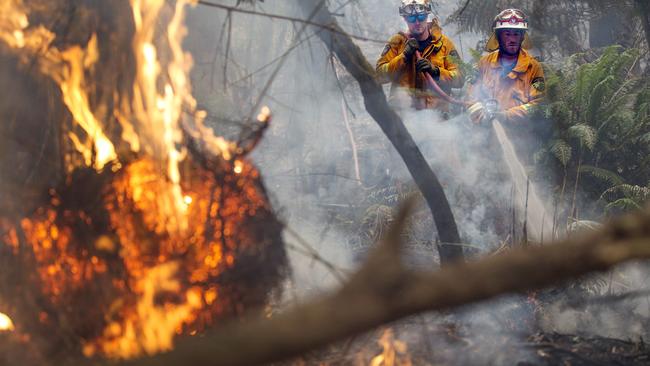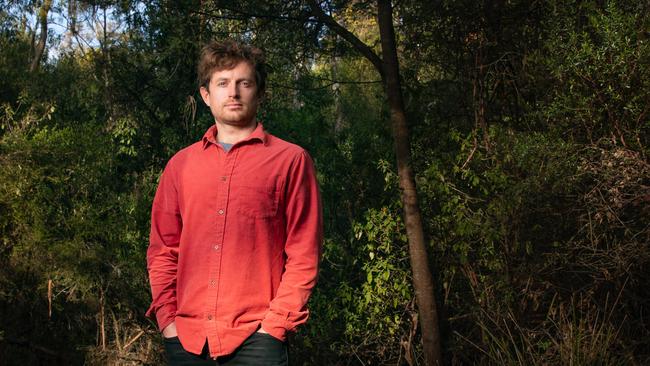University of Tasmanian bushfire study reveals global doubling of extreme blazes
A ‘worrying trend’ has emerged from a 20 year study into bushfires across the globe, with University of Tasmania researchers at the fore. What they say needs to happen.

Tasmania
Don't miss out on the headlines from Tasmania. Followed categories will be added to My News.
Extreme bushfires across the globe have more than doubled in both frequency and intensity over the past 20 years, new University of Tasmania research has revealed.
The study, published in the journal Nature Ecology and Evolution, revealed that six of the past seven years had been among the most extreme on record for wildfires, said lead author Dr Calum Cunningham.
“This study provides concrete evidence of a worrying trend,” the UTAS Postdoctoral Research Fellow said.
“The intensity and frequency of these bushfires are increasing at an alarming rate, directly linked to the escalating effects of climate change.”
The UTAS research team, which included Professor David Bowman and Dr Grant Williamson, used more than two decades of satellite data from intense bushfire events to measure the daily combined heat energy from the blazes.

The research revealed that the number of extreme bushfires more than doubled between 2003 and 2023, and that the average intensity of each year’s 20 most extreme bushfires had more than doubled.
“The impact of these extreme events is devastating, not only for natural ecosystems but also for human populations,” Dr Cunningham said.
“These fires release significant carbon emissions, threatening to create a vicious cycle that further accelerates global warming.
“Extreme bushfires result in catastrophic ecological damage, significant carbon emissions, and severe impacts on human health and safety.
“For instance, Australia’s ‘Black Summer’ bushfires of 2019-2020 were unprecedented in their scale and intensity, leading to massive ecological destruction and substantial carbon emissions.”
The study found that extreme bushfires were increasing fastest in the forests of North America and Russia, while intense bushfire hotspots were also recorded in Australia, southern Africa, Mediterranean Europe, and South America.
The research team researchers called for robust climate action and improved management strategies to help mitigate the growing threat of extreme wildfires.
“Immediate global action is necessary to tackle the root causes of climate change,” Dr Cunningham said.
“We must also develop more effective wildfire management practices that are tailored to the specific needs of each local area.
“Our findings highlight the critical need for both mitigation and adaptation strategies to protect our planet and its inhabitants.”
More Coverage
Originally published as University of Tasmanian bushfire study reveals global doubling of extreme blazes




